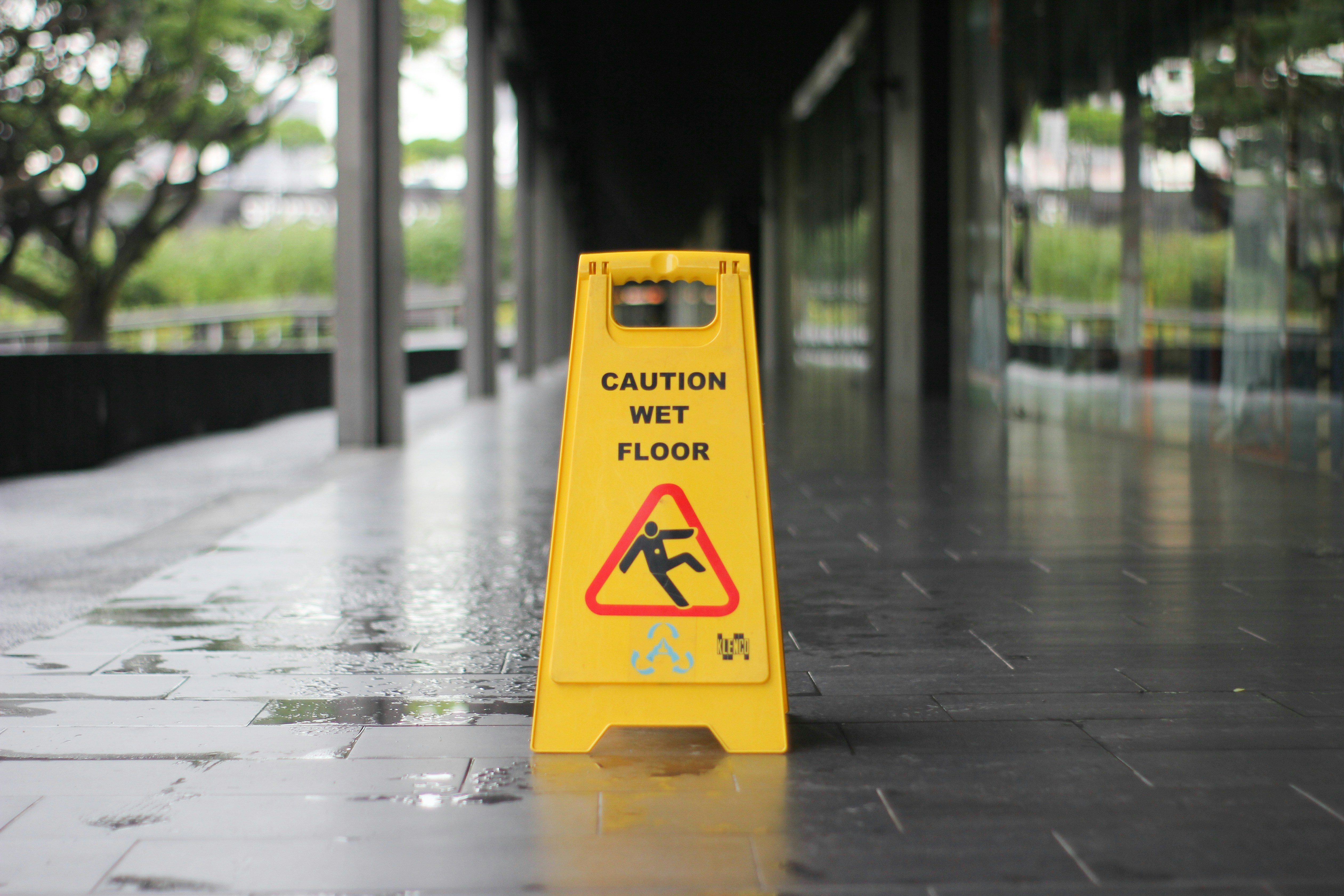The holiday shopping season is a period of peak excitement, increased sales, and, unfortunately, heightened risk. As crowds surge and the weather turns inclement, the potential for accidents — particularly slips, trips, and falls — escalates tenfold.
For retail businesses, establishing proactive strategies for ensuring customer safety in retail stores is critical for reducing liability, protecting profits, and ensuring a positive shopping experience that keeps customers coming back. This means moving beyond simple cleanup and adopting a comprehensive approach to mitigating seasonal hazards.
The Triple Threat: Common Seasonal Safety Challenges
The primary goal of maintaining the health and safety in retail stores during the holidays is to address three predictable, high-risk areas: wet entryways, cluttered aisles, and packaging debris.
1. The Wet Entryway Danger
With shoppers tracking in snow, slush, rain, and mud, entryways and immediate access points become instant slick zones. A wet floor is the leading cause of slip-and-fall incidents. The risk is compounded by the speed at which the floor can become saturated in a busy store.
The Solution:
- Implement a Multi-Zone Matting System: Don't rely on a single welcome mat. Use a three-stage system: a heavy-duty scraper mat outside, a coarser wiper mat in the vestibule, and a high-absorption wiper mat just inside the main entrance. These should cover at least 15-18 feet of travel to effectively strip moisture from footwear.
- Documented Monitoring and Mopping: Assign a staff member the specific task of monitoring entrances and lobbies, particularly during peak hours or inclement weather. Establish a "wet floor patrol" and document every time the area is mopped or a 'wet floor' sign is placed. This documentation is vital in the event of a liability claim.
- Dedicated Signage: Use bright, highly visible A-frame signs immediately at the transition points from outside to inside, even when the floor looks dry.
2. Cluttered Aisles and Carton Obstructions
In the rush to restock shelves to meet demand, the practice of leaving boxes, empty pallets, rolling carts, or overstock in customer-accessible aisles creates a significant floor trip hazard. While necessary for restocking, a misplaced stack of goods can easily be overlooked by a harried shopper focused on finding the perfect gift.
The Solution:
-
Schedule Stocking Strategically: Wherever possible, restrict major restocking efforts to non-business hours. If stocking must occur during the day, designate specific, trained team members to act as spotters, ensuring the area is immediately cleared and never left unattended.
-
Use High-Visibility Containers: If products must be staged for immediate shelving, they should be placed in brightly colored carts or containers, not just brown cardboard boxes that blend into the floor.
-
Adopt a "Clear-as-You-Go" Policy: Ensure all cardboard and packaging plastic are broken down and immediately removed from the sales area and taken to a designated baler or disposal zone. This prevents stray pieces of plastic wrap or packaging foam from causing unexpected trips.
3. Debris and Display Hazards
The holiday season means more complex displays, temporary kiosks, and loose items like hangers, discarded wrapping paper, or broken ornamental pieces. These small items, often overlooked, create hidden tripping hazards.
The Solution:
- Regular, Scheduled Sweeps: Implement a schedule for staff members to conduct "safety sweeps" every hour in high-traffic areas. This is more than tidying; it’s an inspection focused on identifying and removing small debris.
- Secure Display Components: All temporary signage, price tag stands, and display elements must be weighted and secured. Electrical cords for lighting or electronic displays must be fully covered by cord protectors and never run exposed across a walkway.
Proactive Measures: How Stores Can Prevent Slip and Fall Accidents
While addressing visible hazards is essential, true health and safety in retail stores hinges on systemic, proactive measures. The real question is: how can stores prevent slip and fall accidents before they even occur? The answer lies in training, technology, and partnerships.
Comprehensive Staff Training
Every employee, from the cashier to the floor manager, must be trained not just on cleaning, but on hazard identification. They should be empowered to stop what they are doing to address an immediate risk. Training should cover:
- The proper placement and visibility of 'wet floor' signs.
- The correct procedure for reporting and cleaning spills (using the right equipment and cleaning agents for the floor type).
- The legal consequences of ignoring a known hazard.
Professional Floor Care Maintenance
A clean floor is safer, but a professionally maintained floor offers maximum traction. A service like Imperial Cleaning can provide deep cleaning services that go beyond daily mopping:
- Stripping and Waxing: Regular maintenance keeps the floor surface consistent and prevents the buildup of residue that can hide slick spots.
- Grout and Tile Cleaning: Ensures traction on textured flooring remains high by removing embedded dirt.
- Daily Detail Cleaning: Professional services have the specialized equipment to conduct thorough, consistent cleaning that in-house teams often cannot match, ensuring that the foundational level of customer safety in retail stores is always met.
The Liability Lifeline
The cost of a professional cleaning and maintenance program is a fraction of the cost of a single major slip-and-fall lawsuit. Furthermore, consistent maintenance provides an undeniable record of diligence, which is critical in litigation. By partnering with experts, managers can delegate the complexities of commercial floor safety and focus their attention on delivering a stellar holiday shopping experience.
Prioritizing customer safety in retail stores is the best investment a retail company can make. It protects the brand, the budget, and most importantly, the people who shop there.
To ensure your premises meet the highest standards of safety and cleanliness throughout the busiest season, partner with Imperial Cleaning for professional, proactive retail maintenance solutions today.



